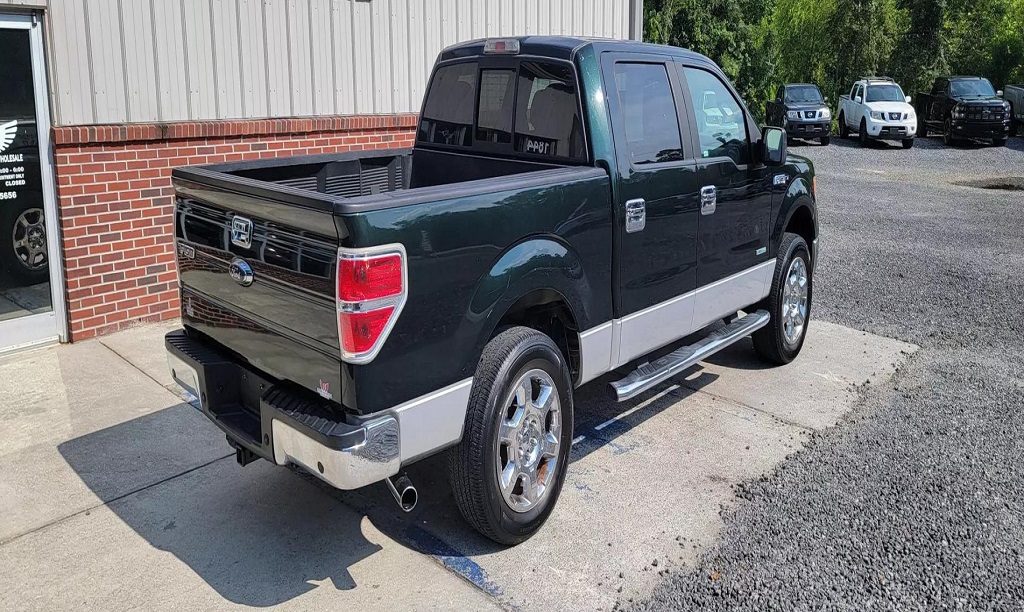Category: Uncategorized
8 Most Reliable Used Trucks in 2024
Posted Wednesday, Jul 24, 2024
Most of you want trucks with proven reliability, solid reputations, and the ruggedness to tackle challenging terrains. The key is knowing where to search and what to seek. That’s where we come in. In this blog post, we’ve scoured the market and analyzed reliability ratings to identify the most reliable used trucks for 2024. 1. […]
Securing Optimal Finance Loans
Posted Monday, Jun 17, 2024
Are you dreaming of driving a brand-new car? You know, the one you have had your eyes on for a long time but can’t figure out how to secure the best financing options to turn it into a reality? Automobile financing can be difficult for many people to understand. Fortunately, there’s no rocket science to […]
Navigating Auto Financing: A Step-by-Step Guide to Getting Your Next Car Funded
Posted Wednesday, May 22, 2024
Imagine stepping into a dealership with the confidence of a seasoned negotiator, ready to claim the vehicle that fits your life and budget perfectly. That’s the power of understanding auto financing. This purchase is smart and aligns with your financial goals and lifestyle needs. This guide is crafted to navigate auto financing, equipping you with […]
Family Trucks Buying Guide
Posted Monday, Apr 22, 2024
Selecting the ideal vehicle for your family is no small feat—it’s a decision that warrants careful consideration and thorough exploration. Although trucks may not initially leap to mind as the quintessential family vehicle, they offer a multifaceted blend of features uniquely suited to accommodate the dynamic needs of family life. In this comprehensive guide, we’ll […]
Comparing Diesel vs Gas Trucks: Which is right for you?
Posted Tuesday, Mar 19, 2024
When it comes to choosing between a diesel and gas truck, there are several factors to consider. Both options offer unique advantages and disadvantages, making the decision a matter of personal preference and specific needs. In this blog post, we’ll explore the differences between diesel and gas trucks, covering factors such as performance, fuel efficiency, […]
Power, Performance, and Payload: Selecting the Best Truck for Your Needs
Posted Monday, Feb 26, 2024
When the open road calls or the job demands more than just carrying tools, the choice of vehicle becomes paramount. Trucks, in their rugged glory and versatile utility, are the steadfast companions for many. Yet, amidst the roaring engines and sleek designs lies the question: which one is right for you? Let’s journey to find […]
Exploring Excellence: A Comprehensive Look at the Best 3rd Row SUVs
Posted Monday, Jan 29, 2024
Sport Utility Vehicles (SUVs) with third-row seating have evolved into the preferred choice for families seeking additional space without compromising on style, comfort, and performance. In this extensive review, we embark on a comprehensive journey through the top contenders within the 3rd-row SUV category. Our spotlight is on the distinguished models of Tahoes, Suburbans, or […]
Getting the Best Finance Loans for Cars: Tips and Tricks
Posted Wednesday, Dec 20, 2023
Finding the best finance loans is crucial in the realm of vehicle purchases. Warren Buffett wisely stated, “The best investment you can make is in yourself.” When it comes to significant investments like cars, securing optimal finance loans becomes pivotal. Preferred Auto Wholesale is your reliable partner in the pursuit of the perfect vehicle. Committed […]
How to Get Financed?
Posted Monday, Nov 20, 2023
It’s a smart choice for consumers to not exhaust their savings on a new car. If you are shopping for a used vehicle then looking into auto finance is the best place to start. Seeking out auto financing for used vehicles offers buyers two-fold benefits in terms of savings and their ability to pay off […]
Best Family Trucks
Posted Thursday, Oct 05, 2023
When it comes to buying the perfect vehicle for an active family lifestyle, you can’t beat a reliable truck. It can quickly become a trusty companion, helping you get kids to school and afterschool activities, tackling DIY projects, or hauling everything you need for a weekend camping trip. But with so many choices available, how […]










